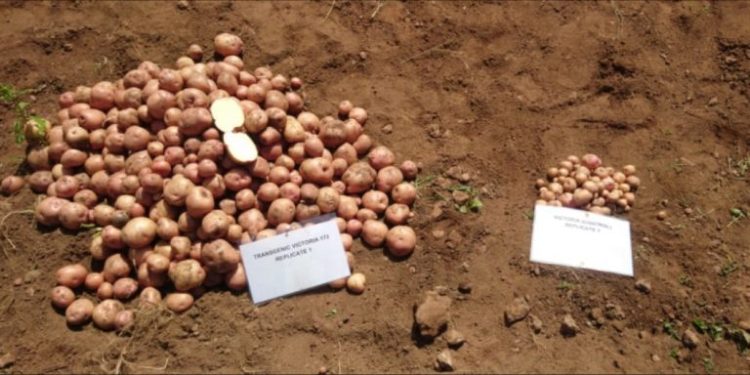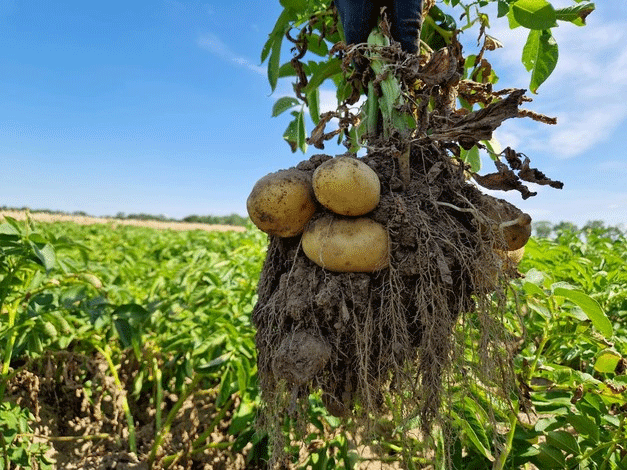In a groundbreaking development poised to transform Nigeria’s agricultural landscape, GM potatoes are set to debut for farmers in the 2025 planting season. Spearheaded by pioneering research and innovation, these genetically modified (GM) varieties promise to revolutionize potato farming by offering farmers two crucial advantages: increased yield and reduced dependence on fungicides.
Late blight disease, a pervasive threat responsible for devastating losses of over 90 percent in Nigerian farmers’ fields, has long plagued the potato industry. Recognizing the urgent need for a sustainable solution, researchers have tirelessly worked to develop biotech potatoes capable of withstanding this deadly disease.
Drawing on comprehensive data collected and analyzed over a two-year research period, scientists have unveiled the remarkable potential of GM potatoes. These innovative varieties demonstrate a staggering yield advantage of 300 percent compared to the best-performing conventional varieties, even in the absence of fungicide application.
Nigeria, ranking seventh among potato-producing nations in Africa and fourth in Sub-Saharan Africa, boasts substantial agricultural potential. However, despite significant production volume, the country grapples with persistently low average yields, averaging just 3.1 tonnes per hectare, among the world’s lowest.
The introduction of GM potatoes heralds a new era of agricultural productivity and sustainability for Nigerian farmers. By harnessing biotechnology, these cutting-edge varieties not only promise to boost yields but also offer a pathway to reducing the environmental and economic burden associated with fungicide use.
With an annual production yield of approximately 843,000 tonnes and a planted area spanning 270,000 hectares, Nigeria’s potato sector stands poised for transformation. As farmers eagerly anticipate the arrival of GM potatoes, the agricultural landscape braces for unprecedented growth and resilience in the face of formidable challenges.
The article highlights the imminent introduction of GM potatoes in Nigeria, emphasizing their potential to revolutionize potato farming by increasing yield and reducing fungicide dependency, thereby fostering economic prosperity and sustainability in the agricultural sector.








